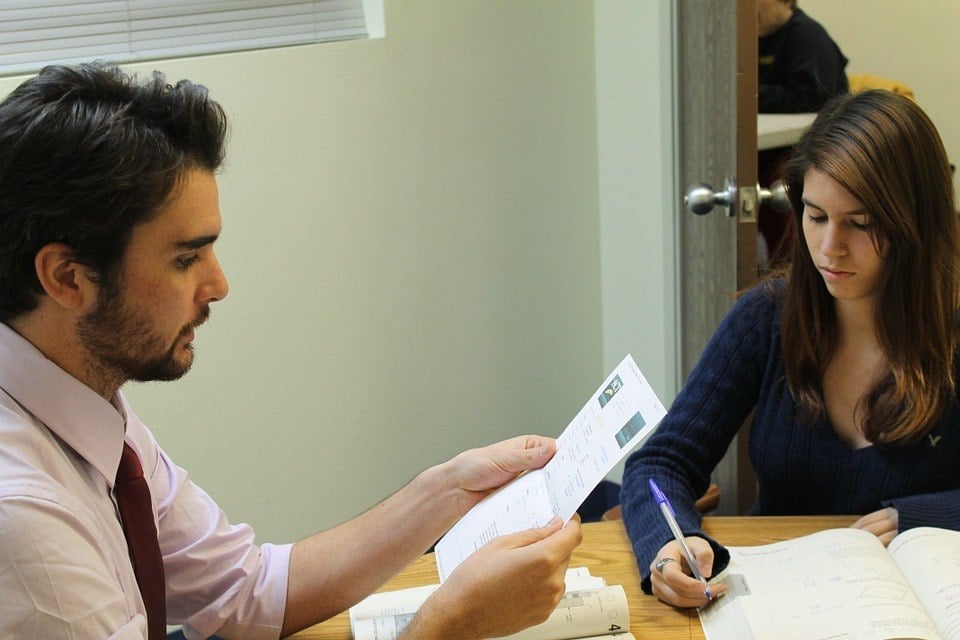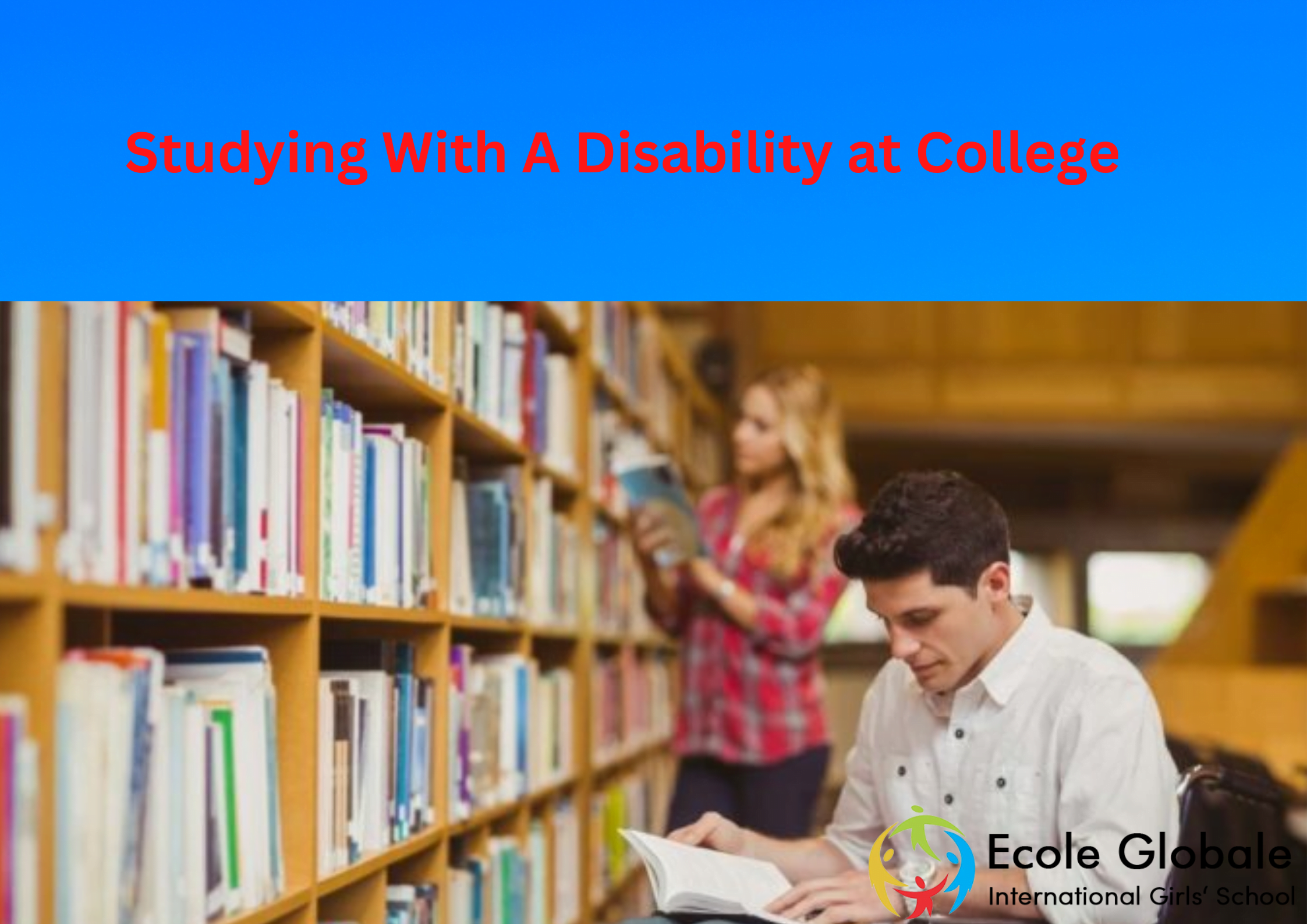People have overlooked the higher education of students with disabilities for a long time. There is a sort of discriminatory prejudice that students, and even professors, often have toward disabled students; The former results in the lack of disabled students in many parts of the world. However, people are slowly overcoming, but there’s a lot to be done.
As per research conducted by School in Dehradun If you are living with a disability, college is hard. Many things can cause difficulties, but they should not stop you from having a successful experience. Success doesn’t mean scoring the highest grade point average — it means you are happy and engaging in what you love. Here are some tips to help with your college experience.
Also Read : 3Ways to Prepare Students for College
Find or Create a Support System

With the right support system- you can thrive at college just like everyone else. To find or create a support system that works for you. Here are some tips for doing just that:
Seek out Resources and Support—Your college has resources available for students with disabilities and special needs; use them! You may be able to get help with tutoring or note-taking or even get special accommodations such as extended time on tests. Check out the Disability Services Office (DSO) on campus, or ask your professors if they know of any resources that might help you succeed in their class.
Make Friends—It’s easy to feel isolated when you have a disability and can not do everything.
But having friends who understand what it’s like to live with a disability makes it easier to connect and ensure that everyone feels included in social situations.
Find Accommodation

If you’re already attending college, you may wonder what the first step is to request accommodations. Your accommodation needs to depend on your circumstances and specific disabilities, so it’s crucial to take inventory of these factors.
Select A Form Of Communication

You should consider which forms of communication would be the easiest for you in class and when studying.
The best option for you depends on your disability, but there are some general guidelines for which type of communication is best for you.
For example, if you have difficulty typing or writing, Speech Recognition software will be beneficial. It allows you to talk with a microphone rather than type things on a keyboard.
If you have trouble speaking or understanding words, text-to-speech may be an option that works well for you because it allows you to type out what you want to say instead of talking aloud.
Let Your Professors Know

When professors know about your disability and understand how to accommodate it, they will often be more sensitive to the same.
Your professors are there to support you, and they’ll ensure that the accommodations they make for you don’t hold you back in any way.
Some people are afraid that if they tell their professors about their disabilities, people will see them as less capable than their peers, but that’s not true! Telling your professors about your disability can help them understand how best to support you in class and on assignments.
Know Your Limits

Know what your limitations are and be realistic with yourself. If you can’t do something, don’t beat yourself up over it. First, do some self-reflection. Think about what kind of student you were in High School and how well you did. Did you get good grades? Did you struggle with any classes? Which ones? What did you wrestle with most? What made it hard for you?
Next, analyse those answers and ponder how they might apply here at college. Are there any classes that are particularly challenging for your disability? If so, find out if any accommodations are available to help make those classes easier for you (for example, note takers or extra time on tests). If not, talk to an advisor about other ways that work for you (like online classes).
Finally, keep an open mind! While some things may seem impossible at first glance (like taking notes in class), there may be other options available that aren’t as obvious initially (like recording lectures or having someone else take
Look for Additional Resources at Your College

Most colleges offer a variety of resources for students with disabilities. If you’re having trouble getting through your classes, consider asking your school’s disability services department. They may have courses specifically designed for people with learning disabilities like ADD or ADHD, or they can work with you individually to help you succeed in your studies.
Plan Everything!
Plan your coursework and work efficiently. Allow lots of time for research, writing, reading, and studies; So that they don’t pile up and overwhelm you at the end of the term.
First, you plan your schedule and ensure you do not over-extend yourself. Make sure you have time to go to all classes, take notes and study in a way that works for you.
Second, ensure to plan when communicating with professors and other faculty members. You may need extra time before or after class for note-taking or participation, so make sure you talk about this with your professors before the semester starts.
Third, don’t be afraid to ask for help if needed! Your professors are there for more than just teaching—they also want their students to succeed and work with them as much as possible.
Don’t Give Up!
Don’t give up even when everything seems too much. Keep going with small steps forward. When you’re studying with a disability, the last thing you want to do is give up. But sometimes, it’s easy to feel like there’s no hope of success. So many things can go wrong in college—from bad grades to not getting along with roommates to being too far from home.
When you’re already facing challenges related to your disability, it can seem impossible to overcome everything else that comes with being a college student.
Conclusion
College can be a stressful time, but you’ll have the best experience if you ensure you’re prepared for it – especially if you have a disability or chronic illness.
So there you have it, our guide to surviving college with a disability. In the end, you shouldn’t let any of this stress you out. If you have a disability or chronic illness, you are undoubtedly more than well-equipped to handle the challenges you will face in your collegiate career. And as long as you are respectful of your professors and peers and work hard enough, chances are that any preconceptions they had about your ability to succeed in college will be shattered.
For any queries related to parenting, schooling, or any student-related tips, click here to check out our latest blogs









